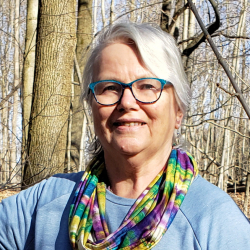Write Right!
- How do we promote writing authentically in this age where technology has spiraled and changed education?
- How do we keep our students writing when there’s an “app” that will do it for them?
- How do we, as adults, keep “writing right”?
Creative writing is one of my passions, alongside reading. As a child I would escape from the reality of having to do farm work or backbreaking weeding in the huge strawberry patch, by finding a quiet corner to read in the haymow. When I was in junior high, I loved writing in my journals and was inspired by my English teacher to develop this love for writing. Teachers and parents are huge role models for students to develop their passion for writing. Reading to your children creates a vocabulary base that enhances their interest and imagination for becoming fluent writers.
How important is the teaching of grammar and sentence structure?
 Buried deep within each of us is the debris of grammar rules learned in grade seven where we had to diagram sentences. Sometimes it seemed that by the end of the lesson, our teacher might have been just as confused as us? I remember loving diagramming sentences, but that may not be your experience. Grammar is essential for writing! Yet, many schools aren’t even teaching grammar anymore. We need to consider how we can make grammar meaningful in the writing process.
Buried deep within each of us is the debris of grammar rules learned in grade seven where we had to diagram sentences. Sometimes it seemed that by the end of the lesson, our teacher might have been just as confused as us? I remember loving diagramming sentences, but that may not be your experience. Grammar is essential for writing! Yet, many schools aren’t even teaching grammar anymore. We need to consider how we can make grammar meaningful in the writing process.
With the outbreak of COVID-19, parents all over the country and the world are trying desperately to help their own children maneuver through their writing assignments. Writing is not an easy or natural task for many students. Remember to have fun with words, together!
As a special education teacher and NILD Educational Therapist for the last twenty plus years, I have embraced the challenge of working with students to experience success in writing. Writing develops after oral speech and reading and is a more complex skill. However, encouraging students to write in a variety of formats (poetry, free verse, songs, paragraphs, journal writing, etc) can offer successful experiences without overwhelming them.
“The ability to write well in a strong hand is only accomplished after much practice. Because fluent script, after learned, flows more easily than print, it requires the cooperation of many cognitive systems.” (Kathy Hopkins, 2016)
Teaching students to write right involves systematic approach with intentional practice.
Four years ago, I trained with NILD (National Institute for Learning Development) in a specific methodology called RX for WRITING! This was an amazing course, and confirmed all my ideas on developing writing for students with written language disorders. Grammar, spelling, writing mechanics, and composition are all taught through games, stories, and a myriad of activities in a small group setting consequently making writing fun! Students are helped to find their voice in writing, and build confidence in their improved writing skills.
I have taught a few RX for Writing groups now, and surprisingly, I am learning as much as the students. Writing can be so much fun! I will write more about the structure and goals of the RX Writing group in my next blog. This writing workshop might be the answer for you and your students!
April was poetry month.
Shel Silverstein is one of my favourite poets who I often quote in my writing classes. Parents, as you are home with your children – if writing seems daunting, start with poetry. Sing together, make up rhymes, journal together, draw shape poetry, and explore sonnets. Enjoy some of Shel Silverstein’s poetry writing:
WHAT DID
What did the carrot say to the wheat?
Lettuce’ rest, I’m feeling ‘beet’.”
What did the paper say to the pen?
“I feel quite all ‘write’, my friend.”
What did the teapot say to the chalk
Nothing, you silly. Teapots can’t talk.
(Shel Silverstein – A Light in the Attic)
Remember, as long as you are writing, you are doing something right!

